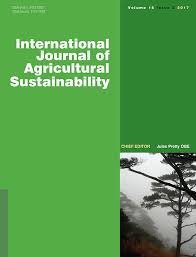Agri-food system integration has the potential to increase and add value to agricultural production, reduce cost of and dependency on external inputs, generate additional income to farmers, and encourage the diversification of outputs and diets. Agri-food system integrations such as livestock-fish, poultry-fish, crop-livestock and rice-fish farming have been well documented in academic literature. However, information on fish and root, tuber and banana (RTB) crops integration is scarcely available, despite their worldwide cultural, dietary, and economic importance. This paper, which is informed by a narrative literature review and ground-truthing through key informant interviews, documents existing linkages between two agri-food systems – fish and RTB – and identifies opportunities and challenges for strengthening their integration. We found that recorded instances of fish-RTB integration are limited and predominantly discuss production-related activities. Nevertheless, initial evidence suggests that there are important livelihood-enhancing opportunities as well as environmental, and food and nutrition security benefits, which need to be considered. These include the potential to improve the nutritional status of vulnerable populations and lower the cost of fish production and thus improve the livelihoods of small-scale fish farmers. Further field-based research is recommended to explore these outcomes in more detail.
Fish, roots, tubers and bananas: opportunities and constraints for agri-food system integration
Citation: Atkins, M.; Byrd, K.A.; Pincus, L.; Naziri, D.; Agboola, J.O.; Yossa, R. 2020. Fish, roots, tubers and bananas: opportunities and constraints for agri-food system integration. International Journal of Agricultural Sustainability. ISSN 1747-762X. Published online 12Jun2020.
2020-06-15
CLIMATE-SMART AGRICULTURE, FOOD SECURITY, FOOD SYSTEMS
Africa, Asia, Southern Asia, Western Africa
Bangladesh, Nigeria
journal_article

